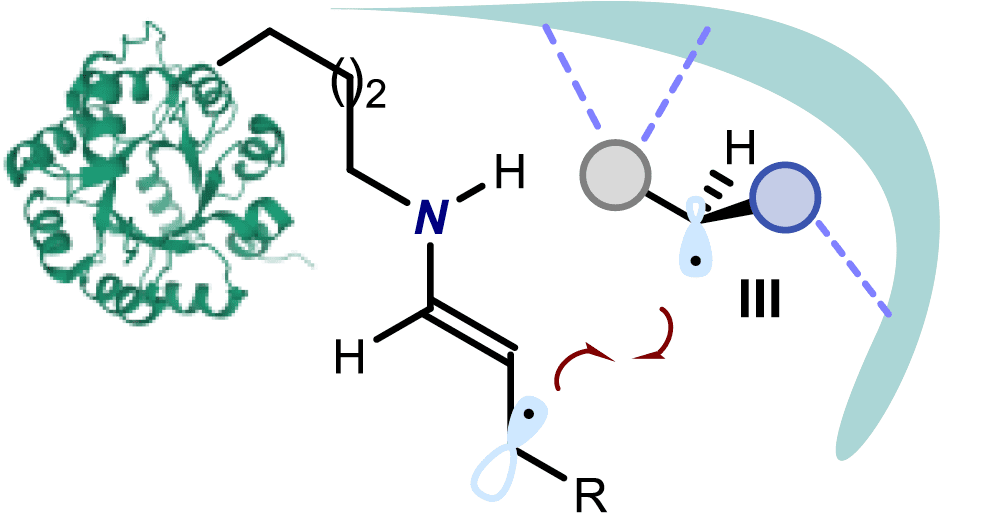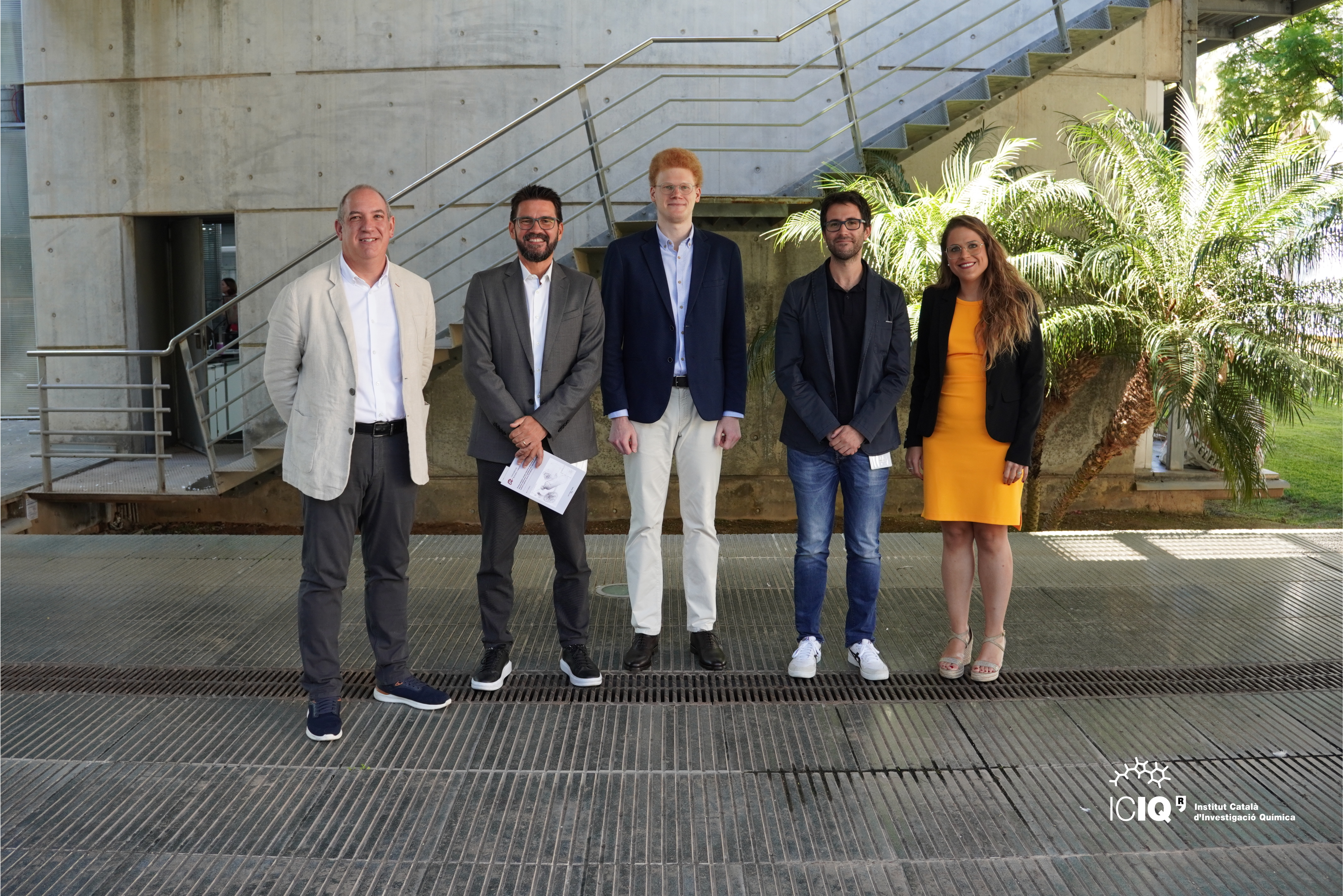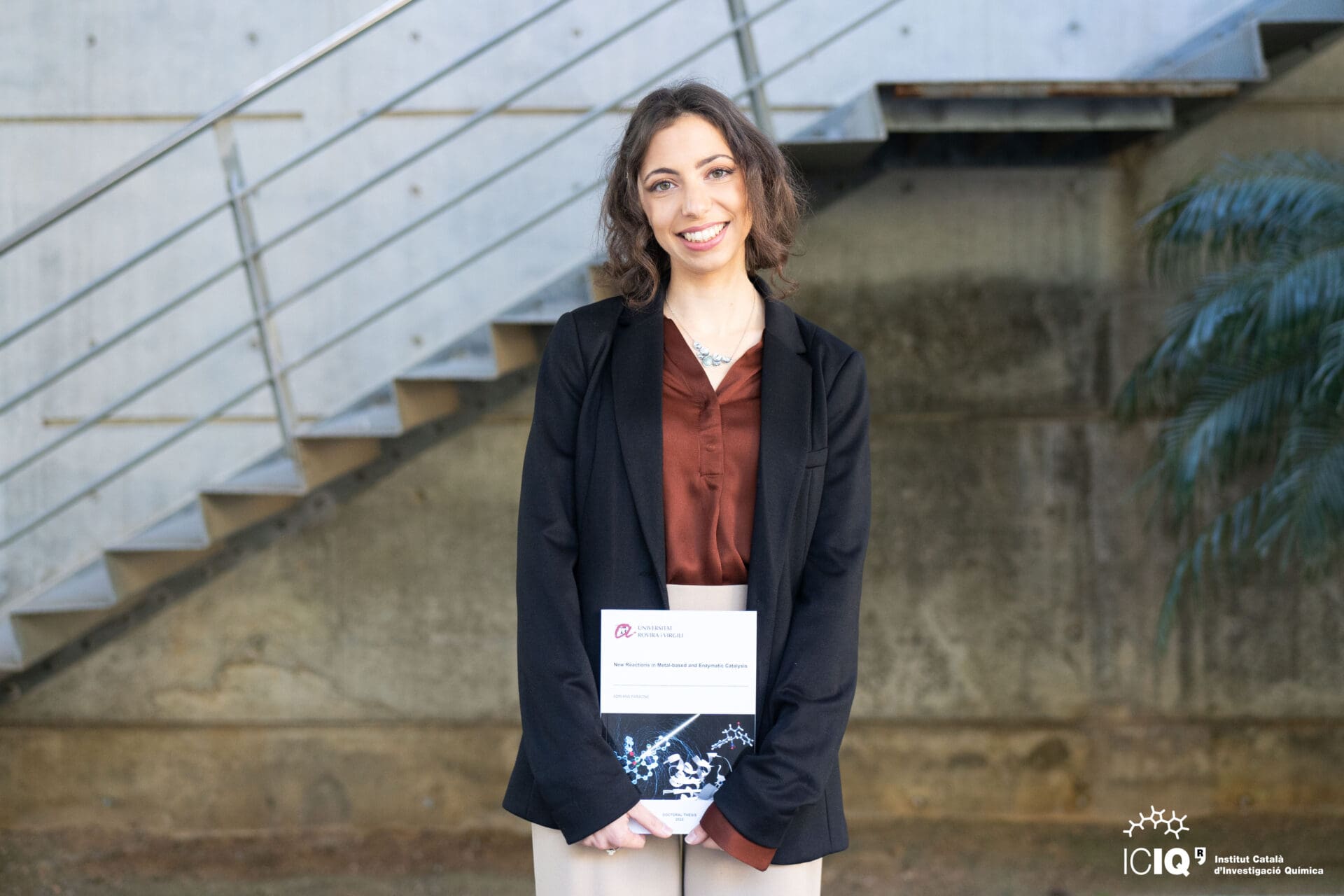Congratulations, Dr. Wong!
23rd abril 2024 -
Thomas Hin-Fung Wong, a PhD student who is under Prof. Paolo Melchiorre’s supervision, has successfully defended his PhD thesis entitled “Harnessing Light for Novel Radical Chemistry from Intermediates with Established Polar Reactivity” publicly on April 23rd.
The members of the evaluation committee were Prof. Giorgio Bencivenni (Università di Bologna, Italy), Prof. Monica H. Perez Temprano (ICIQ) and Prof. Xavier Companyó (Universitat de Barcelona).

Dr. Wong was born in Sydney, Australia. Moving with his family to Hong Kong, he continued to live in the city until receiving a bachelor’s degree at the University of Hong Kong, double major in Chemistry and Biochemistry. After obtaining a MS degree at University of Michigan in Ann Arbor, where he conducted research on total synthesis of natural product, Thomas joined the Melchiorre group in September 2020 as a PhD student to study photochemistry of enamine/iminium species, funded by the FI-AGUAR Fellowship
Why did you become a scientist?
I am fascinated with complex chemical structures, and it feels natural for me to take on a lifelong quest to study them.
What do you want to achieve as a scientist?
To understand and (partly) control how molecules behave
What is your thesis about?
My thesis discusses some of our ventures to teach old dogs a few new tricks, simply by shining light on some well-established ionic intermediates. This allowed us to new radical chemistry under mild conditions and tackle some longstanding synthetic challenges.
What triggered your interest for the subject of your thesis?
Traditionally, organic chemists relied the polar chemistry to think about how to prepare useful molecules. After decades of dedicated effort, extraordinary levels of sophistication have already been reached, and it was difficult to discover new reactivities. Light is a controllable source of energy for us to unlock new, exciting, and useful opportunities in organic synthesis.
What applications can your thesis have in the future?
I hope these studies would help us to better understand the potential of combining orthogonal polar and radical reactivities for new reactions. Our attempts may also bring some hope to for radical chemistry to leave academic research labs and find applications in the industry.
The thing that I like most about my thesis is….
The efforts to understand the mechanisms of new chemical reactions and to use them for meaningful applications.
What do you wish you had known at the beginning of your PhD?
…that success is a combination of luck, knowledge and hard work, in this order of descending importance.
What advice do you have for someone who’s starting their PhD now?
Passion and persistence are your best companions: passion fuels the best days, persistence carry you through the worst.
Where are you going next? What will you do there?
I will be working at Max Planck Institute in Germany as a postdoctoral researcher.


Notícies relacionades

Creem un futur més brillant
Uneix-te al nostre equip per treballar amb investigadors reconeguts i fer front a les novetats
projectes i contribuir a avenços científics significatius






 22-11-2024
22-11-2024 



















